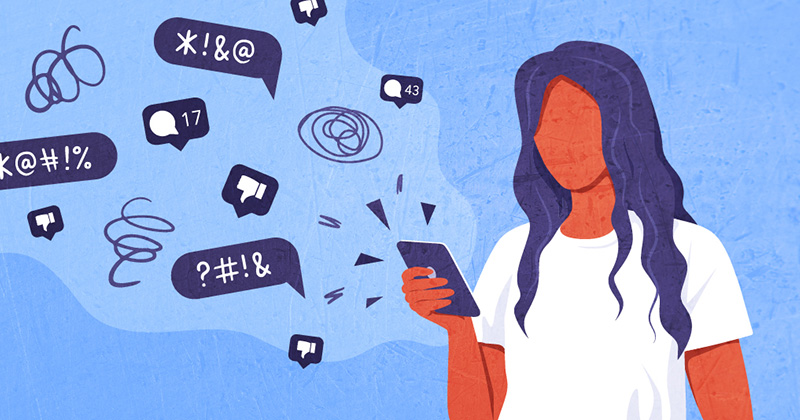
Jennifer Kubota
Jennifer Kubota
Director, Diversity, Equity and Inclusion
Office location
University of Delaware, 332 Building X, Wolf Hall, Newark, DE 19716
Lab
773-270-3228 / ifsnlab@gmail.com / 800 Barksdale Road, Newark, DE 19711
Education
- Ph.D. – University of Colorado, Boulder
- B.A. – University of Wisconsin, Madison
Biography
Jennifer Kubota, Ph.D., is an associate professor in the Department of Psychological and Brain Sciences at the University of Delaware. She holds a joint appointment in the Department of Political Science and International Relations. She is the co-director of the Impression Formation Social Neuroscience Lab.
Kubota received a joint Ph.D. in social psychology and neuroscience from the University of Colorado, Boulder. She then held a postdoctoral fellowship in social neuroscience at New York University, during which she worked on projects related to the neural foundations of racial bias.
Kubota's research explores how we achieve equity in intergroup relations. She examines how we form impressions of marginalized individuals or those who are different from us; how those impressions influence our thoughts, feelings, and decisions; and how we may intervene to achieve parity or improve interactions. As a social neuroscientist, her research crosses disciplinary boundaries, bridging psychology, neuroscience, and decision-making with the goal of understanding real-world social change.
Kubota's work has been published in various neuroscience and psychology journals, including Nature Neuroscience, Nature Human Behaviour, Psychological Science, Perspectives in Psychological Science, Journal of Experimental Social Psychology, Biological Psychology, and Social, Cognitive, and Affective Neuroscience. She has received funding from the Army Research Institute, Ford Foundation, National Institute on Aging, and the National Science Foundation in support of her research.
Courses Regularly Taught
PSYC867 Prejudice, Stereotyping, and Discrimination
PSYC493 Hate and Extremism
PSYC489 The Implicit Mind
PSYC492 Prejudice, Stereotyping, and Discrimination
Research Projects
Area: Social Psychology
The rapid increase in the racial diversity of our population provides us with growing opportunities to interact with other-race individuals. Whereas investigations of how interracial contact shapes intergroup attitudes and person evaluation have a long scholarly tradition, little is known about how interracial contact influences social cognition beyond intergroup relations. In this line of research, we utilize social cognitive tasks and neuroimaging (fMRI/EEG) to examine how individual differences in intergroup contact across the lifespan influence various social cognitive abilities. We are currently testing potential behavioral and neural consequences of contact diversity in the context of mentalizing ability.
Researchers: Jasmin Cloutier and Jennifer Kubota
Another research question surrounds whether and how implicit and explicit associations interact with visual components of the environment. This area of inquiry also explores how variation in the target individual's features, and in the perceiver's stereotype endorsement, facilitate or hinder social categorization and stereotyping.
Researchers: Jasmin Cloutier and Jennifer Kubota
Using fMRI and EEG, we examine how the availability and use of person-knowledge impacts neural activity when perceiving and evaluating others based on physical cues (i.e., a judgment that requires no person-knowledge) or person-knowledge (e.g., an individual’s past behavior). The goal of these projects is to uncover the processes supporting the use of each kind of information and to identify how individuals weight the various kinds of information when forming impressions and making decisions.
Researchers: Jasmin Cloutier and Jennifer Kubota
We are currently conducting a series of projects examining the perception of police officer-civilian interactions. The growing number of publicly available video recordings of police officer-civilian interactions has elicited divergent public opinions ranging from complete justification of the officer to calls for criminal charges against the officer. Accordingly, this work is timely and aims to identify how the individual differences of perceivers impact evaluations of both the police officer and civilian. This project explores fundamental social cognitive processes (i.e., implicit and explicit associations) and real-world outcomes (e.g., perceptions of aggression and legitimacy) using fMRI, stress reactivity, and eye-tracking.
Researchers: Jasmin Cloutier and Jennifer Kubota
Our lab systematically investigates the perception of status (i.e., hierarchical rank) and its consequences for how we attend to and evaluate others. In our recently published social neuroscience framework for the study of status, we distinguish between (1) status dimensions (i.e., domains in which an individual may be ranked, such as wealth), and (2) status level (i.e., one’s rank along a given dimension). One key takeaway from this distinction is that one's status level may depend on the status dimension in question (e.g., low in financial status, high in moral status). These differences may have important consequences for how we evaluate and interact with those occupying different positions in a given social hierarchy. Additionally, we are interested in how different contexts and status cues may shape status-based evaluations and decisions. Inspired by our social neuroscience framework for the study of status-based evaluations, we are currently exploring how status may interact with salient visible social categories such as race, age, and gender. This work uses a combination of classic social cognitive tasks and neuroimaging (fMRI/EEG).
Researchers: Jasmin Cloutier and Jennifer Kubota
Representative Publications
Kubota, J.T. (2024). Uncovering Implicit Racial Bias in the Brain: The past, present, and
future. Daedalus, 153, 84-105.
Kubota, J.T., Venezia, S., Gautam, R., Wilhelm, A.L., Mattan, B.D., Cloutier, J., & (2023).
Distrust as a form of inequality, Scientific Reports, 13, 9901.
Dang, T.P., Mattan, B.D., Handley, G., Barth, D.M., Cloutier, J., & Kubota, J.T. (2022).
Perceiving social injustice during arrests of Black and White civilians by White police officers: An fMRI investigation. NeuroImage, 255, 119153.
-

Evolution of social media aggression
September 12, 2024 | Written by Margo McDonoughUD Summer Scholar Blake Tran study sheds light into why people can be nasty online -
Drivers of racial hatred
June 27, 2022 | Written by Ann ManserNeuroscientist Jennifer Kubota awarded fellowship to study white supremacy -
'Lunch with Our Professors' April 20
April 05, 2022 | Written by CAS Staff'Lunch with Our Professors' April 20

